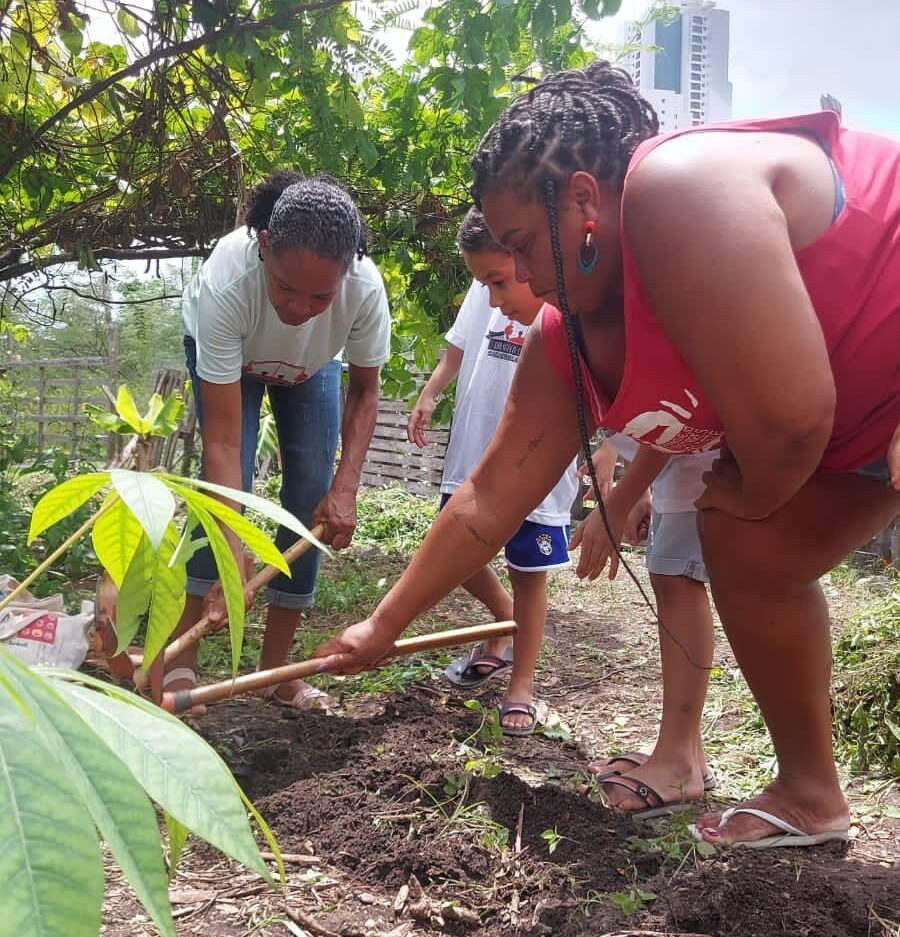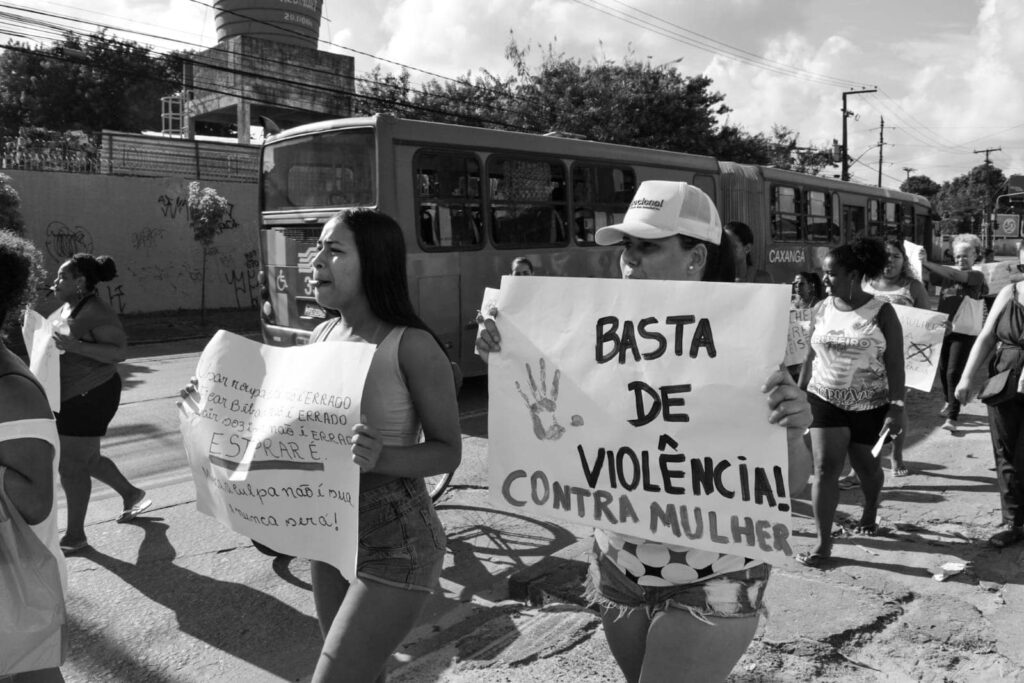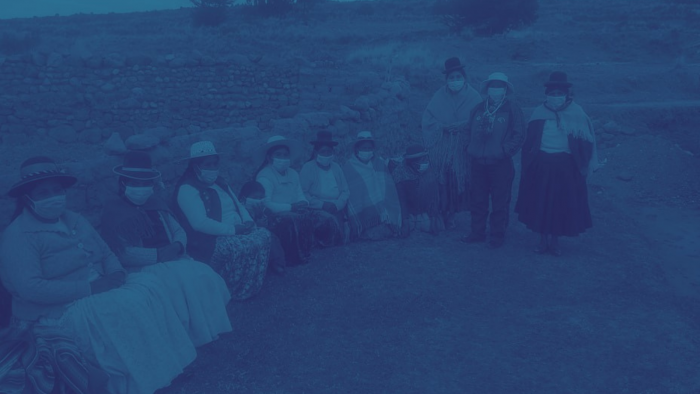Daring to Hope: Coletivo Caranguejo Tabaiares Resiste

Our tactical partner Coletivo Caranguejo Tabaiares Resiste (Coletivo Caranguejo) is a grassroots collective based in Recife, the capital of Pernambuco state in Brazil’s Northeast region. A fishing community of 6,000 located on the banks of the Capibaribe River in Recife, Caranguejo Tabaiares is predominantly composed of Afro-descendant women and children. This population is continuously targeted with threats and harassment from political and economic forces such as major real estate companies interested in land grabbing and eviction.
Founded in 2018 to resist territory displacement by infrastructure project developments, Coletivo Caranguejo works to protect the Caranguejo Tabaiares community’s rights to housing, territory, memory, culture, safety, and wellbeing. Through campaigns, popular education, direct action, cultural activities, advocacy, alliance building, and strategic litigation, Coletivo Caranguejo defends their territory, empowers their community, and addresses environmental racism.
Racism in the region
The Northeast region of Brazil is the country’s poorest region, and its economic situation only worsened during the pandemic. Forty percent of its 57 million people were living on less than $2 a day by the end of 2021. This poverty coexists with a beautiful coastal zone that has an abundance of rivers and vegetation, paving way for land grabbers to take over the area and increase housing costs to exorbitant rates.
The high cost of land and housing has led part of the population to live in favelas, urban communities characterized by poverty and lack of access to water, health care, sanitation, and employment, as well as garbage accumulation and air, noise, and visual pollution. Brazil’s favelas are home to 16 million people, 70% of whom are Afro-descendant, a group of people disproportionately impacted by racism and violence. In the state of Pernambuco, for example, an Afro-descendant young man is killed by a public security agent every 4 hours, and people who live in poor communities are often threatened by eviction to make room for infrastructure projects.
“This whole scenario highlights the reality of Black women and their children who live here in the northeast of Brazil,” Sarah Marques, general coordinator for Coletivo Caranguejo, explains. “We are the most vulnerable population whose marginalization is further threatened with racist attacks and prejudices and a total lack of public policies in the areas of education, health, housing, security, transportation, and basic sanitation. In other words, necropolitics is real for us Black women and our children.”
Fighting the land grabbing menace
Despite working under volatile circumstances, Coletivo Caranguejo continues to raise hope and resist threatening forces. Things got worse a few months ago, when members of Coletivo Caranguejo participated in the elections to represent their community in the political space. “The elections led to the division of the community as a direct consequence of increased disputes and spread of fake news becoming more heated. This is a strategy used to weaken grassroots organizations that fight to guarantee the rights of our community residents,” they shared.

On International Women’s Day (March 8), Coletivo Caranguejo members took to the streets to raise awareness on the femicide rates in Brazil, especially of Black women, and demand better housing and a life of dignity. | Photo by Revelar.Si, a collective of photographers from the Coque community
The social use of land is not properly addressed by the authorities and to counter the land speculation around the area, Coletivo Caranguejo organized the occupation of the land where their permanent housing will be built, and established a garden, a square for soccer and courts for basketball. Coletivo Caranguejo said, “This will guarantee the social use of this space and prevent the land from being taken over by land grabbers.”
A portal of hope and harmony
Food insecurity is widespread in the Caranguejo Tabaiares community, and Coletivo Caranguejo believes that agroecology is a key tool to increase the food supply and reach food sovereignty. To that end, they manage a garden and are establishing a kitchen to create income for the Caranguejo Tabaiares community. The agroecological garden provides food to the community, and the kitchen serves as a space for culinary training about how to best use the food they grow.
“The memories of our mothers gathering family and friends in the kitchen, especially on Sundays, while preparing lunch, are ones filled with affection, care, and a sense of welcoming,” Sarah says. CCTR envisions their community kitchen as a portal for two goals: bringing food sovereignty closer to their community, and preserving ancestral memory by encouraging women to prepare food and spices following methods and recipes they learned from their own mothers and grandmothers.
“Preserving ancestral memory means keeping our history of struggle and resistance alive and, thus, strengthening our bases. We believe that by having knowledge of our cultural roots and awareness of the relevance of our people, we can value and pass on this knowledge to future generations, keeping our racial identity alive and uncompromised,” they explain.

Members of Coletivo Caranguejo gather together to plant a baobab tree. “It was donated to us by a friend who brought it straight from the Che Guevara settlement. It is a symbol of our struggle and resistance for the territory. This tree was brought to Brazil by our ancestors from Africa, and it represents our people so well, as it serves as food for the body and also for the soul, offering shelter and healing,” Sarah shares. | Photo courtesy of Coletivo Caranguejo Tabaiares Resiste
During the chaos of the pandemic, Coletivo Caranguejo dreamed of setting up a community kitchen where food could be grown in the adjacent garden. “When everything seemed to be coming to an end for us—Black men and women, poor and slum-dwellers—hope was born in us. The garden was the breath of hope that led us to believe that it is possible to overcome food insecurity if we return to growing our own food as our ancestors did,” they share, adding that the garden is at the “heart of our dream” of ensuring food sovereignty for all. “Our goal is to feed our people not just by providing food for the body, but for the soul, rescuing ancestral customs, reconnecting and recognizing ourselves as Black men and women,” they say.
Featured image courtesy of Coletivo Caranguejo Tabaiares Resiste
Related Stories


